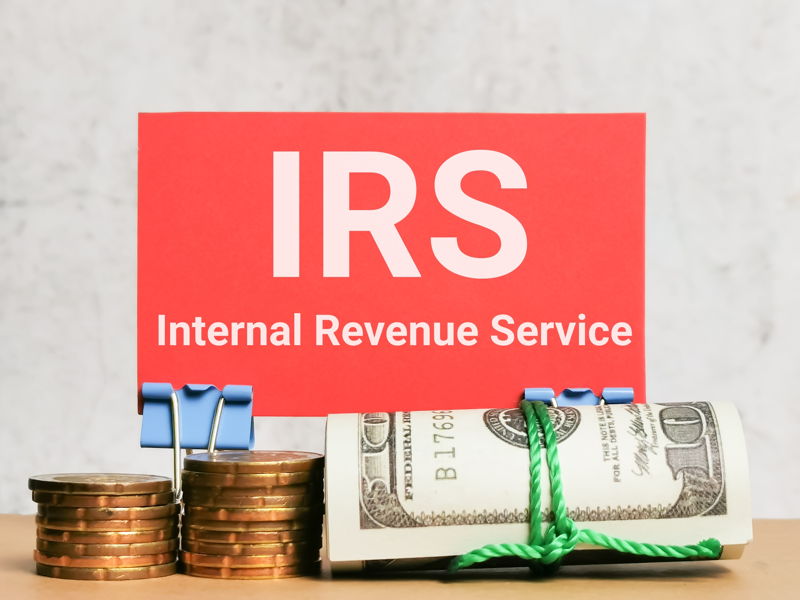Ever wondered how the IRS Statute of Limitations can affect your savings? Ignoring the statute can. It may result in accruing additional penalties and interest on unpaid taxes. However, you don’t have to worry with Sullivan by your side. Wondering how long it lasts and when it’s finally done? Sullivan got the answers to all your questions. With his experience of 10+ years with the IRS, he says that the IRS can come after you at any time if you choose to delay.
A Comprehensive Overview: When can the IRS extend the Statute of Limitations?
Filing a Tax Return: The IRS Statute of Limitations typically starts running from the date you file your tax return. This marks the beginning of the timeframe during which the IRS can assess additional taxes or you can claim a refund.
No Tax Return Filed: If you fail to file a tax return, there’s no statute of limitations on assessment. The IRS can technically come after you at any time, emphasizing the importance of meeting filing deadlines.
3-Year Rule: In most cases, the IRS has three years from the filing date to make changes to your return. This applies to assessments, refunds, or credit claims.
Extended to 6 Years: If the IRS suspects you underreported your income by 25% or more, they can extend the Statute of Limitations to six years.
No Limit for Fraud: If fraud is involved, there’s no time limit. The IRS can audit and assess additional taxes without constraints, emphasizing the seriousness of fraudulent activities.
What is the General Statute of Limitations on Collection Cases’ Period?
In most cases, the IRS operates under a general statute of limitations, giving them a ten-year window from the date of assessment to collect unpaid taxes. This means that once a taxpayer files their tax return, a clock starts ticking, giving the IRS a decade to pursue any outstanding tax debts.
Why does it operate? This restriction was to make sure that taxpayers would not be the target of ongoing IRS collection efforts. Once the ten-year period expires, the IRS loses its legal authority to continue collection actions related to those specific tax liabilities. Taxpayers need to be aware of this timeframe, as it offers a level of protection and finality regarding their past tax obligations.
How Does the IRS Calculate the Statute of Limitations’ Expiration Date?
- Filing Date of Tax Return: The starting point for calculating the expiration date of the Statute of Limitations is typically the date you filed your tax return. This marks the beginning of the countdown.
- Assessment Date: If the IRS assesses additional taxes or makes adjustments to your return, the Statute of Limitations period may begin from the date of assessment, which could be different from your filing date.
- Tax Audits and Examinations: If your tax return is selected for an audit or examination, the Statute of Limitations clock may be paused until the audit is completed and any resulting adjustments are finalized.
- Offer in Compromise (OIC) Submissions: When you submit an Offer in Compromise to settle your tax debt, the Statute of Limitations is suspended during the review process, and the countdown stops until a decision is reached.
- Bankruptcy Proceedings: Filing for bankruptcy puts a halt to the Statute of Limitations. The clock remains paused throughout the duration of the bankruptcy proceedings, and it only resumes once the bankruptcy case concludes.
- Tax Court Petitions: If you file a petition with the Tax Court to dispute IRS actions, the Statute of Limitations is temporarily on hold until the case is resolved, ensuring that you have adequate time to address the matter through the legal process.
Former IRS Agent’s Insights: Factors Influencing Statute Extensions
The IRS Statute of Limitations, typically set at ten years, can be extended under specific circumstances. These extensions are essential to understand to ensure you’re aware of your tax liability. Here are the key factors that can lead to Statute extensions:
- Filing for Bankruptcy: When you file for bankruptcy, the Statute of Limitations is effectively paused. This suspension remains in effect throughout the duration of the bankruptcy proceedings, ensuring that the IRS cannot pursue collection actions during this time.
- Offer in Compromise (OIC) Submissions: If you submit an Offer in Compromise to settle your tax debt, the Statute of Limitations is temporarily suspended during the review process. This means the clock stops ticking until a decision is reached regarding your OIC.
- Tax Court Petitions: Filing a petition with the Tax Court to dispute IRS actions can also put the Statute of Limitations on hold. The countdown resumes only after the Tax Court case is resolved, giving you ample time to address the matter through legal channels.
Understanding these factors that can extend the IRS Statute of Limitations is crucial for taxpayers. It ensures that you’re aware of any potential delays in the expiration of the Statute and allows you to plan your tax-related actions accordingly.
Learn the Role Professional Assistance in Helping Taxpayers
Tax professionals bring valuable expertise to the table, helping taxpayers effectively manage their tax compliance and legal rights about this statute.
- Accurate Expiration Date Determination:
Tax professionals have the knowledge and experience to accurately calculate the expiration date of the Statute of Limitations based on individual circumstances. This ensures that taxpayers are well-informed about their specific timelines. - Help Understand Factors of Extensions:
Professionals can help taxpayers understand and navigate factors that might extend the Statute of Limitations, such as bankruptcy, offer in compromise submissions, or tax audits. They can devise strategies to mitigate the impact of these extensions. - Offer Resolution Strategies:
When taxpayers face outstanding tax issues, tax professionals can develop effective strategies for resolution. They may negotiate with the IRS on behalf of their clients, helping to settle tax debts or disputes. - Provide Legal Expertise:
In cases involving Tax Court petitions or complex legal matters, tax professionals can provide the legal expertise necessary to protect taxpayers’ rights and interests.
Wrapping Up
Keeping up with the IRS Statute of Limitations is crucial for individuals and businesses alike. Understanding the rules, expiration dates, and factors that influence this statute can significantly impact one’s financial stability and tax compliance. Seeking professional assistance and guidance from experts who understand the intricacies of tax law is a wise step to ensure that taxpayers meet their obligations while safeguarding their rights within the bounds of the IRS Statute of Limitations.












